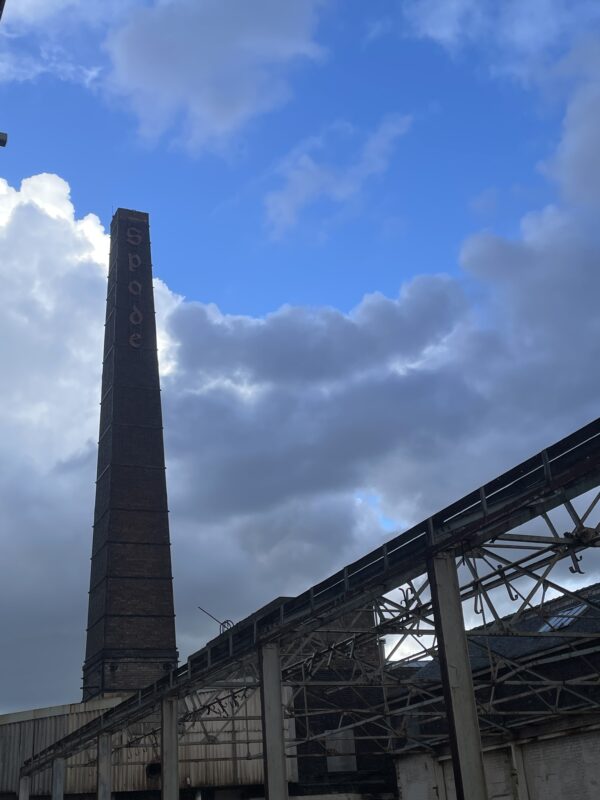Suspended between the not-quite-spring and the surely winter’s over it’s been 6 months since the course began. An encounter I had recently was playing on my mind as I rode down the canal on my inappropriately London-ey road bike to the gallery this morning. It was on the way back to Stoke, with a delayed train meaning I found myself with an awkward wait for my connecting train in London. I tried a favourite pub of mine for a quick dinner, forgetting it was a Friday night until I arrived to the familiar ruckus of young professionals drinking away the sour taste of a week at work. No chance of a quick dinner, so I took a slow meandering walk through the back streets and on to Euston where I found a corner of the station pub and ordered myself a pint of fizzy lager. It wasn’t long before another gentleman came and sat opposite me – me on my table of 6 for one and with plenty of space around this meant just one thing; that two strangers where about to have a conversation to fill a moment of time between their comings and goings.
“Where are you headed? Not headed, just arrived.”
He was a software engineer. Monied. Or at least exuded that sort of macho self confidence that only comes from money or insecurity. He was on the way to meet someone who had been drinking all day and decided he needed to catch up a little. We spoke in the sort of cyclical stop start sort of way that occurs when two people are trying yet have little common ground. He had never met a potter, he said. Nor I, a software engineer. 6 months is a long time to be immersed in making pots. The echo chamber – to borrow a term so frequently used it has lost all meaning – of people who care about the most subtle of lines, the soft quality of the clay, the marks you make and how you as an individual comes through in your pots, is so far removed from those in the world who may come to buy them. We have a near obsessive motivation to capture that quality, but I couldn’t help but feel as though perhaps that is too abstract a quality for most people who might add a piece of hand made pottery to their world. All too easily are these marks can come across as unrefined and crass. Is it possible to be true to yourself and to the quality of the material without alienating a large portion of people ? Why would you want to position your work in such a way that it may lead to exclusion? I do not know and have no desire to do so but I do realise how easy it is to become so focused on the detail, with that focus re-radiated by peers and tutors, to the extent where we can lose site of the fact that we are making pots to be enjoyed by people, not just by potters.
The Spode site in Stoke wraps round itself and hides all manner of secrets and creative hubs. Fort Knox, it is both welcoming and off-putting simultaneously. The creative spaces stand in stark contrast to the barren and dank rooms that have been forgotten alongside them. None more than the China Halls, a sort of half relic of the corporate vision of sustainable preservation of historic spaces, with its door and awning faux-staunchly adjoined to tempt people off the street before disappointing them with a defunct expanse of prime development opportunity. But in front of these halls stands a little rose garden, that is being looked after and transformed alongside the community by artists. Yesterday I went there as they were firing a kiln full of bricks, for the garden, made by people in the community who care about the future of the public space. The tension between the inaccessible world of the site, and the public facing creativity of a small group of people got me thinking about the pottery world in general, and how we cannot wrap ourselves in our own obsessions to the degree that we entangle ourselves so much in the maze of the material that we are left with nothing but the form of an impenetrable fortress that is alien and uninviting from the outside.
I write this in the back end of the Clay College website. A world alien to me, full of code and things I do not understand; a digital labyrinth like the channels and corridors at Spode, and I find myself thinking about that software engineer. I am in his world now: I cannot see the beauty and I do not understand the desire to engage with it, know about it, or make it. And I think about pots. And how this world that we make may never be understood at all.
Callum
.

